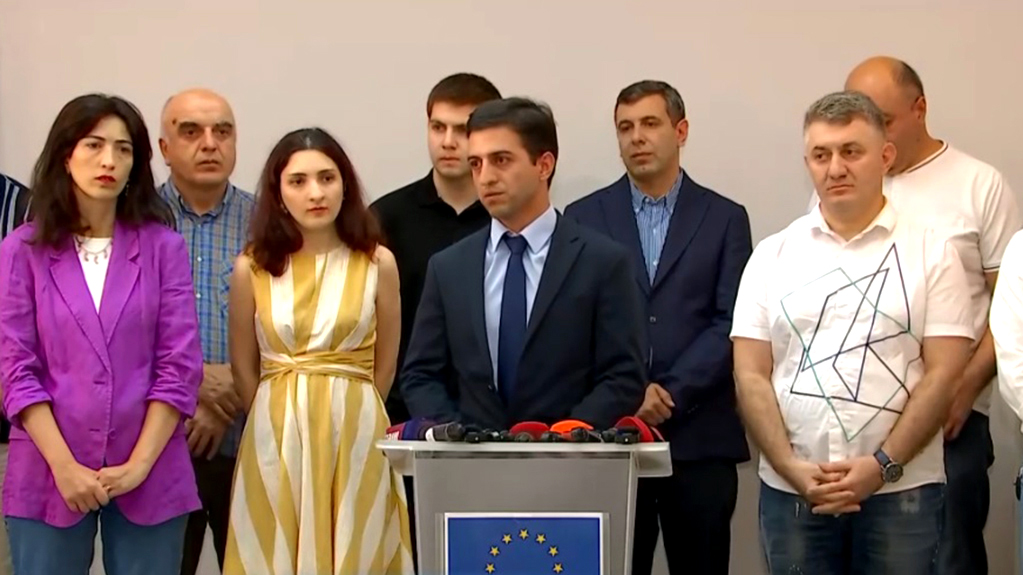121 non-governmental and media organizations have appealed to the Constitutional Court against the Russian Law on so-called Foreign Agents. The lawsuit seeks to annul the law and suspend the implementation of its unconstitutional provisions until a final decision is reached by the court.
News
"The constitutional lawsuit clearly reaffirms that this law restricts every individual's right to join like-minded individuals for productive work and to aid others. By adopting the Russian Law, the government is fostering a hostile and oppressive environment, thereby jeopardizing the enjoyment of rights such as association, expression, and other freedoms," stated Giorgi Davituri, representative of the Freedom of Information Development Institute (IDFI), during today's briefing.
The appellants hope the Constitutional Court will promptly exercise its authority to suspend the contested articles of the law. They are also preparing a complaint for submission to the European Court of Human Rights.
"If the Constitutional Court delays, we will continue to pursue international mechanisms.
Granting the state the power to enforce this law will gradually stifle dissenting voices in the country, leading to the erosion of organizational forms of freedom of expression and association in both the media and the non-governmental sector.
We reiterate that we will not abide by the rules of the Russian Law and will use all available internal and international means to obstruct its enforcement until it is unconditionally repealed. Yes to Europe, no to Russian Law!" Davituri emphasized.
President of Georgia, Salome Zourabichvili, has also appealed the Constitutional Court against the Russian Law. According to Giorgi Mskhiladze, Zourabichvili's Parliamentary Secretary, Zourabishvili demands the immediate suspension and ultimate repeal of the Russian Law, arguing that it contradicts Article 78 of the Georgian Constitution, which supports integration into European and Euro-Atlantic structures.
"The lawsuit also contests several provisions that violate fundamental rights guaranteed by the constitution," Mskhiladze added.
Opposition deputies in parliament will also file a constitutional lawsuit. As stated by Tamar Kordzaia, the lawsuit is nearly finalized and already bears the signatures of 30 deputies.
If the Constitutional Court does not comply with the plaintiffs' demands, the Russian Law will be fully enforced on September 3rd. Non-governmental and media organizations that receive more than 20% of their income from grants provided by international organizations will be required to register as entities serving the interests of foreign powers. The law will designate Georgia's strategic partners, who provide grants, as Foreign Powers.
Leaders of the EU and US have cautioned Georgian authorities that adopting this law would impede the country's Euro-Atlantic integration process. Despite these warnings and public protests, the Georgian Dream parliamentary majority overrode the president's veto on May 28th, ultimately enacting the Russian Law.















